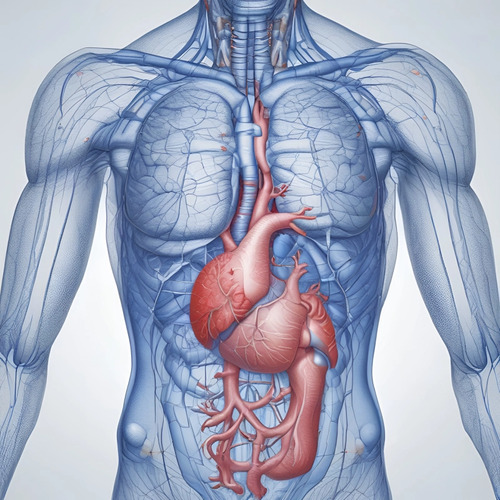Gut Bacteria – The Heart and Stomach Connection
In recent years, scientific research has unveiled a fascinating connection between gut bacteria and overall health, specifically focusing on the intricate relationship between the gut, heart, and stomach. This article delves into the critical interplay between these systems, underscoring how gut microbiota influence heart health and stomach functions.
Understanding Gut Bacteria: The Microbial Ecosystem
Our gut is home to trillions of microorganisms, collectively known as the gut microbiota. These microbes play a pivotal role in digestive processes, immune system modulation, and even mental health. The balance of these bacteria is crucial, as an imbalance can lead to various health issues.
Gut Microbiota Composition
The gut microbiota consists of thousands of different bacterial species. Dominant among these are Firmicutes and Bacteroidetes, with smaller populations of Actinobacteria and Proteobacteria. A balanced composition ensures effective digestion, nutrient absorption, and a robust immune defense.
The Gut-Heart Axis: A Vital Connection
Influence of Gut Bacteria on Heart Health
Emerging studies have established a significant link between gut bacteria and cardiovascular health. The gut microbiota affects the heart in several ways:
- Cholesterol Metabolism: Certain gut bacteria aid in breaking down dietary cholesterol, reducing the risk of atherosclerosis, a condition characterized by the hardening and narrowing of arteries.
- Production of Short-Chain Fatty Acids (SCFAs): These compounds, produced during the fermentation of dietary fibers by gut bacteria, help regulate blood pressure and reduce inflammation, critical for heart health.
- Trimethylamine N-oxide (TMAO): Some gut bacteria metabolize dietary choline and L-carnitine into TMAO, a compound associated with increased cardiovascular risk. Understanding and modulating these microbial pathways can help mitigate heart disease.
Gut Dysbiosis and Cardiovascular Disease
An imbalance in gut microbiota, known as dysbiosis, can lead to systemic inflammation, contributing to hypertension, heart failure, and other cardiovascular conditions. Maintaining a healthy gut flora is crucial for heart health.
The Gut-Stomach Connection: Digestive Health
Role of Gut Bacteria in Digestion
Gut bacteria are essential for efficient digestion. They assist in breaking down complex carbohydrates, proteins, and fats, producing essential nutrients and vitamins such as Vitamin K and B vitamins. The gut-stomach connection is also evident in the regulation of gastric motility and secretion.
Impact on Stomach Disorders
Imbalances in gut bacteria can lead to stomach disorders such as gastritis, peptic ulcers, and irritable bowel syndrome (IBS). For instance, Helicobacter pylori, a bacterium found in the stomach, can cause ulcers and increase the risk of gastric cancer if not properly managed.
Gut Bacteria and the Immune System
The gut microbiota plays a crucial role in modulating the immune system. It helps in the development of immune cells and the production of antimicrobial substances. A healthy gut flora ensures a balanced immune response, reducing the risk of autoimmune diseases and allergies.
Leaky Gut Syndrome and Inflammation
Leaky gut syndrome occurs when the intestinal barrier is compromised, allowing toxins and bacteria to enter the bloodstream. This triggers systemic inflammation, which can adversely affect the heart and other organs. Maintaining gut integrity is essential for preventing chronic inflammation and its associated health risks.
Diet and Lifestyle: Modulating Gut Health
Probiotics and Prebiotics
Incorporating probiotics (live beneficial bacteria) and prebiotics (dietary fibers that feed good bacteria) into the diet can enhance gut health. Foods like yogurt, kefir, sauerkraut, and fiber-rich fruits and vegetables are excellent sources.
Avoiding Harmful Substances
Limiting the intake of antibiotics, processed foods, and high-fat diets can prevent gut dysbiosis. Antibiotics, while necessary for treating bacterial infections, can disrupt the gut microbiota balance, leading to long-term health issues.
Conclusion: The Integral Gut-Heart-Stomach Relationship
Understanding the complex relationship between gut bacteria, heart, and stomach health is pivotal for preventing chronic diseases and promoting overall well-being. By maintaining a balanced gut microbiota through diet and lifestyle modifications, we can significantly impact our heart and digestive health, underscoring the importance of this fascinating biological interplay.






